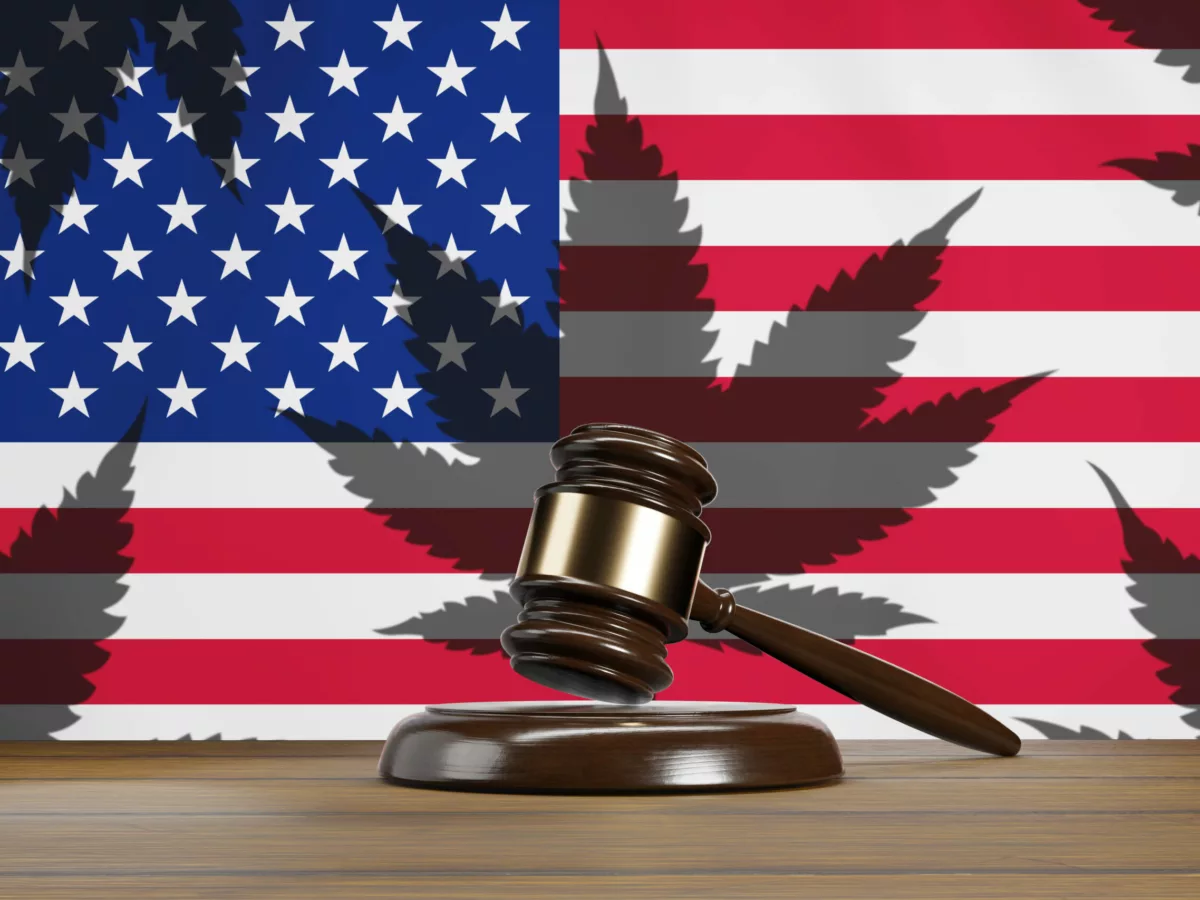The two cannabis legalization bills that were submitted to the Maryland General Assembly will not receive a vote this session, a consequence of a pandemic-packed agenda and lawmakers’ inability to resolve small but crucial differences between the two bills.
In an interview with The Outlaw Report, Del. Jazz Lewis, sponsor of the House legalization bill HB 32, said the bills would not meet the deadline to receive a vote this year in part due to lawmakers inability to agree on whether or not to cap the number of microgrowers licensed into the adult-use market.
HB 32 would allow an unlimited number of licenses to be distributed to micro-growers which have cultivation sites smaller than 5,000 sq.ft, or about the size of a basketball court. For comparison, HB 32 would also permit 10 licenses for cultivation sites up to 50,000 sq.ft., or about the size of a football field.
Culta is a Maryland-based cannabis company that is vertically integrated, meaning they have state licenses to grow, process, and sell cannabis. Culta is most well known for their partnership with one of the top California-based cannabis brands that allows them to grow some of the most sought-after strains in the country for Maryland’s medical market.
Del. Jazz Lewis told The Outlaw Report that Culta’s CEO, Mackie Barch—in addition to other medical cannabis industry leaders—had influence on Sen. Brain Feldman’s legalization bill, SB 708, which puts a hard cap on micro-grow licenses.
Sen. Brian Feldman denied a request for an interview by The Outlaw Report. The Outlaw Report also reached out to Culta but have not yet received a response. We will update this story if or when a comment is provided.
Microgrower licenses permit small scale cannabis cultivators to sell their product to dispensaries. Del. Lewis said leaving these licenses uncapped is crucial to increasing the supply of cannabis in Maryland and ensuring those who were most harshly persecuted for its prohibition have the opportunity to participate in the legal market.
“We cannot achieve racial and social equity without these provisions,” Lewis said.
However, existing medical license holders like Culta have personal stake in opposing these provisions. Leaving the number of microgrowers uncapped would significantly increase competition in the adult-use market, the lack of which has allowed vertically integrated growers to dominate the medical industry.
Mackie Barch has been vocal about he and Culta’s opposition to home-grow and uncapped micro-grow licenses for Maryland’s adult-use industry. In a January 2019 interview for The Pivot, a podcast by the Baltimore Business Journal, Barch said “what we’ve seen in Oregon, Colorado and other places with large home grow programs is the cartels, other gang-related criminals move in and they abuse the law. And so, we have just seen too much — it just creates too much of an issue for the regulated industry and it is really not fair for us to have to play by the rules.”
In response to Barch’s perceived influence on SB 708, Maryland cannabis advocates and medical card holders are calling for a boycott of Culta products in April.
“We are asking all medical cannabis patients in Maryland to not purchase Culta-brand products during the month of April because Culta owner Mackie Barch is using his wealth and political influence to delay the arrival of expanded personal freedom for the average citizen,” Maryland NORML’s Luke Jones said in a press release. “Our laws should facilitate safe business practices, not establish artificial monopolies.”
Vertically integrated growers like Culta have enjoyed the exclusivity of Maryland’s medical cannabis market since its inception. By permitting microgrowers to participate in the adult-use industry, the price of cannabis would likely drive competition up and prices down as a result of the state’s larger supply of quality cannabis.
Jones told The Outlaw Report boycott participants do not expect to make an outstanding impact on Culta’s April sales, but intend to raise awareness into Mackie Barch’s influence on this legislation.
Barch donated $5,000 to Sen. Feldman’s campaign in 2020 in addition to $6,000 and $2,500 to Senate President Bill Ferguson and Judicial Proceedings Vice Chair Jeff Waldstreicher, respectively, who both sponsored Feldman’s bill including the micro-grower cap.
In an interview with The Outlaw Report, Jones claimed the actual reason that Barch and other medical cannabis industry leaders oppose home-grow and unlimited micro-grower provisions is because they would diminish their standing in the adult-use market after enjoying the protections of the limited license medical market.
“[Culta] is using their status as an MMCC license holder to position themselves to dominate the adult use market, and then to intervene in legislation to that end,” Jones said.
MD NORML’s press release unpacked this claim further: “Mr. Barch has essentially admitted that Culta can’t survive without state-protected market access. He is the ring-leader and primary champion for the state licensed cannabis businesses seeking to maintain their state-sponsored monopoly status under the medical program and extend that favorable market position into the adult use market,” Jones said in a press release.
In the The Pivot interview, Barch also expressed concerns that permitting home-grow and microgrowers would allow unsafe, untested and unregulated cannabis onto the streets and make it impossible to eliminate the illicit cannabis market.
However, until Maryland passes an adult-use legalization bill, untested and unregulated cannabis is the only option for the vast majority of cannabis users who still require the illicit market to buy products.
His argument against home-grow legalization echoed other national industry leaders who oppose similar provisions in their state legalization bills. In December 2019, the New York Medical Cannabis Industry Association (NYMCIA) submitted a report to Governor Andrew Cuomo urging the governor to ban home-grow for the same reasons: dangerous products and a persisting illicit market.
Melissa Moore, the New York state deputy director of the Drug Policy Alliance, said Barch’s argument doesn’t quite add up: “It’s really disingenuous to try to say that it would not be possible to eliminate the illicit market if we allow for home-grow. That certainly hasn’t been the experience of other states that allow home-grow.”
Legal states have witnessed an illicit market boom bolstered by the legalization of cannabis—but not because of individuals legally growing up to six plants in their backyard. As previously reported by The Outlaw Report, the illicit market will persist post-legalization in Maryland as a consequence of expensive, taxed legal cannabis that many consumers will continue to buy at half the cost from the illicit market.






